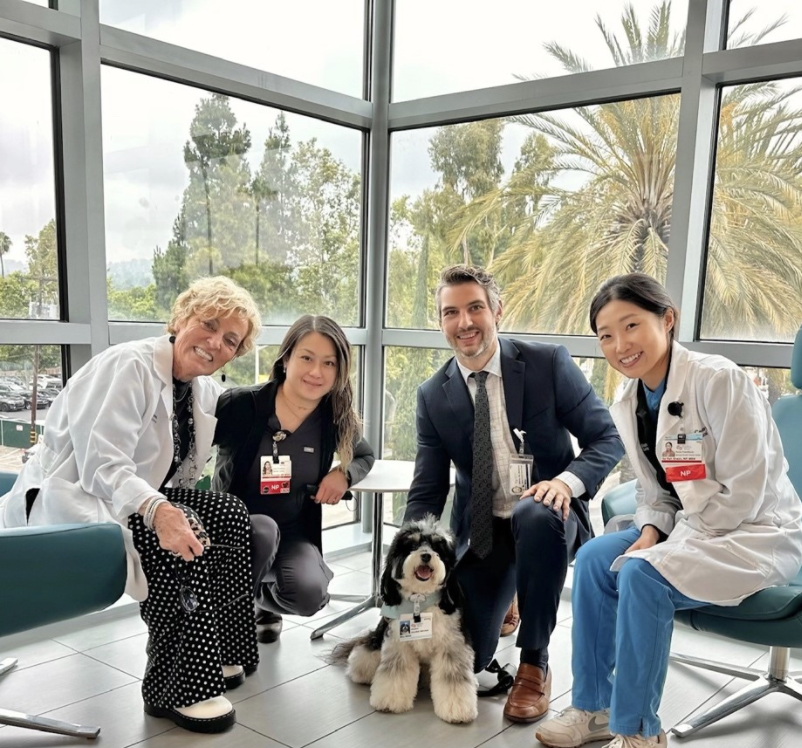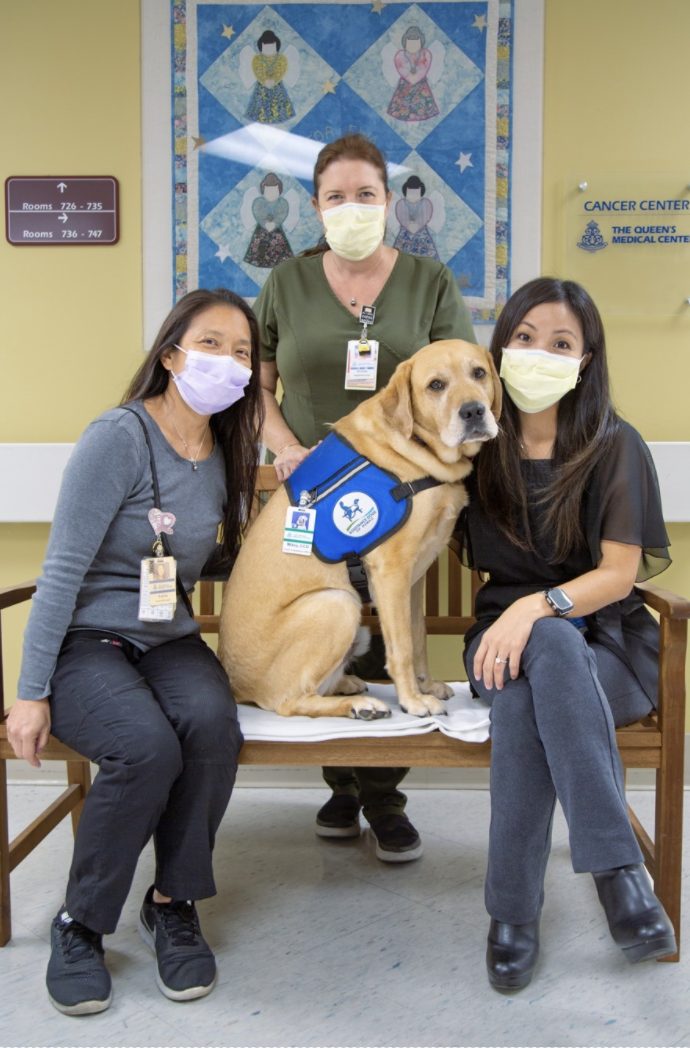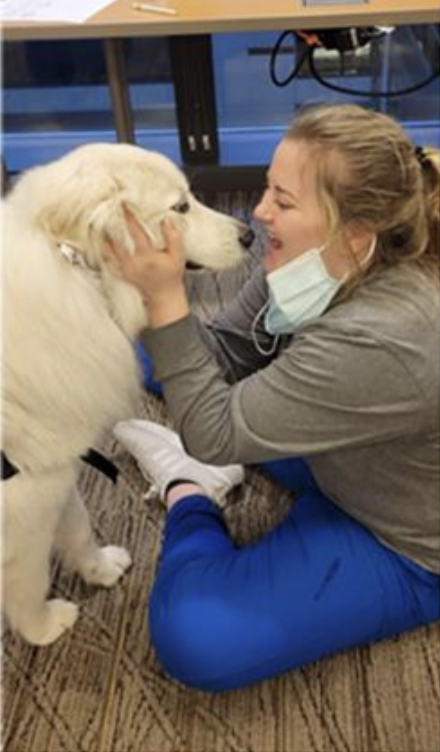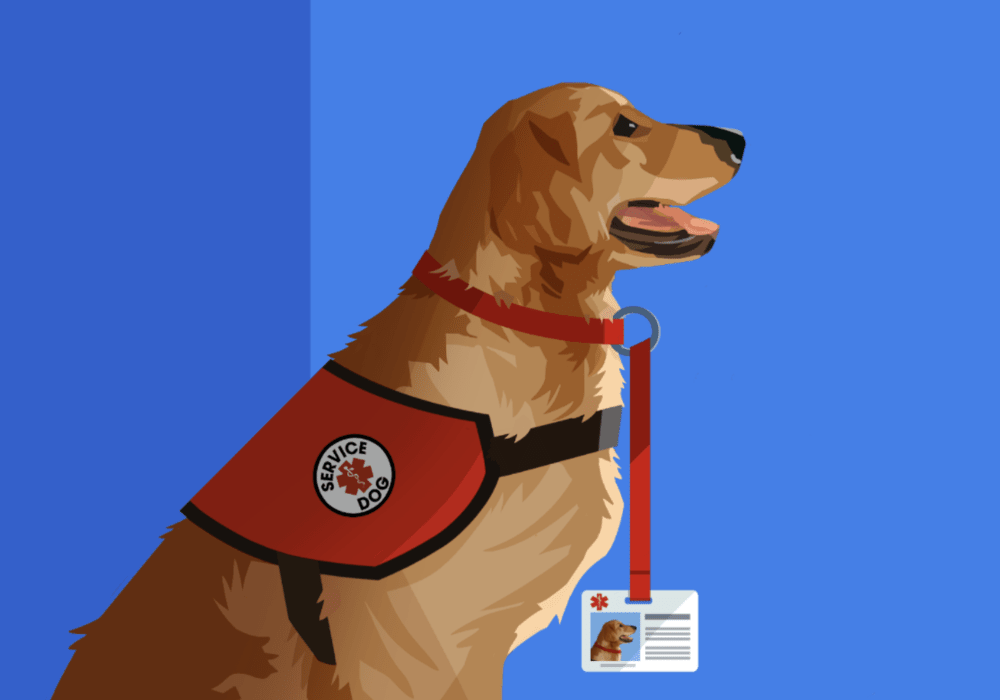Interacting with animals can have positive effects on our well-being, including easing loneliness and reducing stress. To bring those benefits to patients in a healthcare setting, institutions may employ service or therapy dogs. But those pups don’t brighten days for patients alone—they also spread joy to healthcare staff, including nurses. To honor those helpful hounds, September is National Service Dog Month.
What the Research Tells Us
Research suggests that service dogs can have a measurable effect on certain aspects of psychosocial health, including improved emotional, social, and work or school functioning, for patients with physical disabilities or chronic conditions. The researchers found that the psychosocial benefits extended from the animals’ assistance and companionship.
Research among pet owners supports those findings. The Centers for Disease Control and Prevention encourages creating a bond with your household pet, which can improve physical health factors, such as blood pressure, exercise, and socialization.

ONS Members Show Off Their Institution’s Service or Therapy Dog
At Cedars-Sinai Medical Center in Los Angeles, CA, a petite Berne doodle named Milo helps staff in the radiation oncology clinic and breast health services center, ONS member Sylvia Estrada, DNP, WHCNP-BC, CBCN®, nurse practitioner at Cedars-Sinai Medical Center, said. Milo mainly oversees the clinic areas, which is exciting not only for patients and staff but Milo as well.
“He knows his way to the clinics and can barely contain his excitement when he enters the parking garage,” Estrada said. “Milo has been welcomed and appreciated by both patients and staff. When there are inherent delays and wait times because of coordination with diagnostic imaging in the breast health service center, Milo provides relief and distraction. His presence certainly helps make the time go by quickly.”
Milo also spends time among staff, allowing healthcare providers and administrative workers to take a moment for themselves and recharge before returning to providing patient care. Milo may be small, but he has a big effect, Estrada said.

At the Queen’s Medical Center in Honolulu, HI, a four-year-old Labrador retriever named Mikey is one of three hospital facility dogs. He primarily visits patients on the inpatient oncology unit but will often get requests to see patients in other units.
“He has visited a wide variety of patients, from those who just love dogs to those truly struggling and need a ‘touch of home’ or normalcy. It sounds cliché, but it was wonderful to see the genuine, heartfelt moments he’s had with patients,” Mikey’s handlers, ONS members Cheryl Ann Afuso-Sumimoto, MSN, RN, APRN-Rx, ACCNS-AG, a clinical nurse specialist; Karla Ihara, RN, BSN, OCN®, a nurse manager; and Michelle Motas, RN, BSN, OCN®, a nurse, said.
But Mikey’s positive effects on the center go beyond patients. His handlers have also noticed healthcare providers’ pure joy and excitement when Mikey makes his way around the center.
“We cannot tell you how many nurses, doctors, rehab therapists, pharmacists, and others have expressed how happy it made them to see Mikey or stopped us in the halls to greet him and take pictures with him,” they said. “We have also visited units after a code or a stressful event has occurred, and the staff were so thankful we stopped by because they needed to decompress. It was a good reminder for us to think about the pressure and stress that the staff are experiencing, and how they need and could benefit from pet therapy as well.”

ONS member Michelle Payne, DNP, RN, OCN®, BMTCN®, nursing practice specialist at Atrium Health Wake Forest Baptist in Winston-Salem, NC, passed along photos of the medical oncology intensive care unit’s therapy dog Maggie and the unit manager Priscilla Dickerson’s, MSN, RN, story of how Maggie came to start visiting.
“A few months after I transitioned to this role in 2022, I realized the team was faced with insurmountable death and dying, and I could tell it was negatively affecting them,” Dickerson said. “I began thinking of ways to help teammates cope with the emotional distress and decided that pet therapy would be one way to brighten their day a little.”
After a little inquiring, Maggie soon became a regular visitor in the unit and has had a positive, lasting effect on the nurses.
“Several teammates stop by, and you can instantly see how interacting with Maggie promotes a healing environment and provides a good distraction,” she said. “Maggie gives everyone a sense of calmness, comfort, and happiness. I believe this improves their behavioral and mood outcomes.”
Tell your fellow ONS members about the special service dogs in your practice—or ask their advice for bringing one into your own institution—on the ONS Communities.






